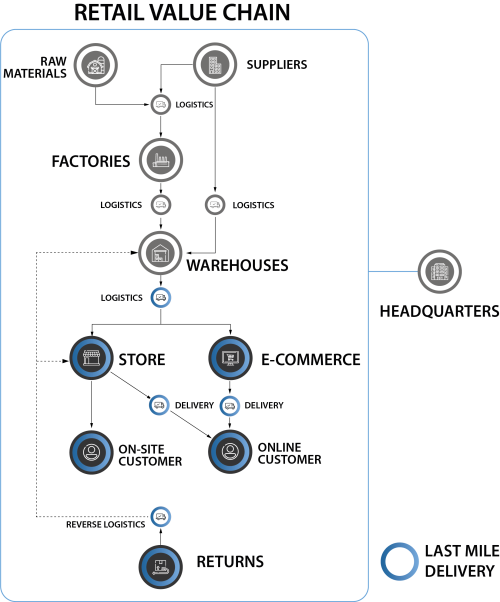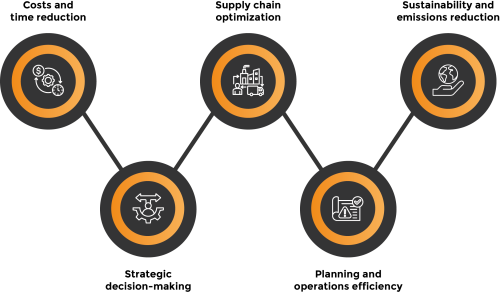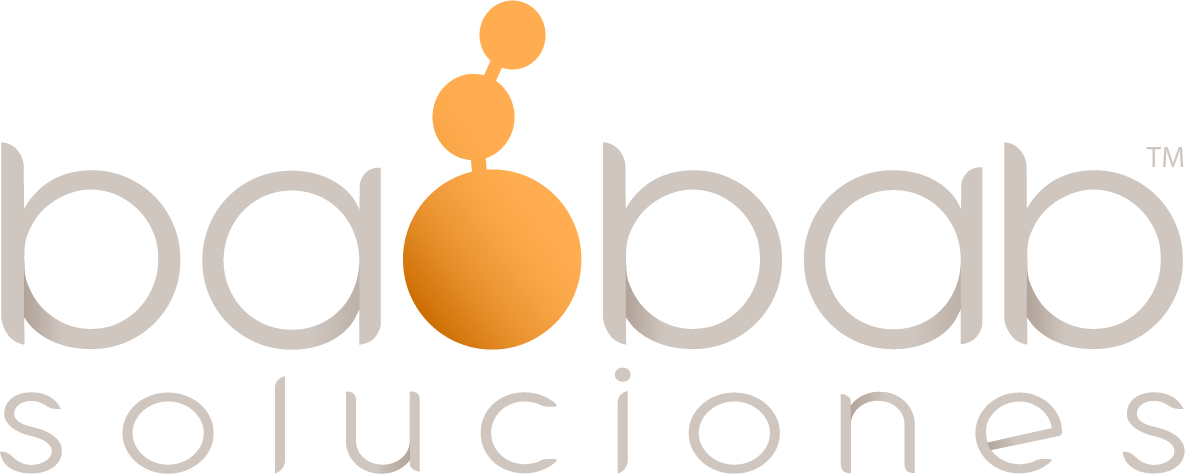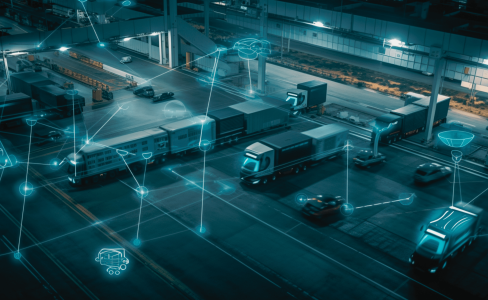For retail companies, last mile deliveries cover the final stretch of the distribution process, from a logistics center to a store or the end customer. This part of the retail value chain might seem less relevant, but it has become a crucial factor for the success of major companies, as it accounts for over 40% of total transportation costs. Retail companies that manage these processes efficiently can significantly improve their margins and positively impact customer satisfaction.
Here are the key insights you need to know to enhance your deliveries.

What is the last mile delivery?
As we mentioned above, last mile delivery refers to the shipment of a product or material from a warehouse, manufacturer, or store to the end customer. This customer could be at their workplace, another store, or the local carrier’s pick-up station.
For instance, the Traveling Salesman Problem is one of the most studied issues. It involves finding the shortest route that allows a traveler to visit a series of cities once and return to the starting point.

What advantages does AI offer in this distribution process?
Optimizing AI (Opti-AI) employs advanced analytics techniques to enhance decision-making. In the context of last mile delivery, it develops mathematical models and algorithms to address specific problems within this system.
For instance, the Traveling Salesman Problem is one of the most studied cases. It involves finding the shortest route that allows a traveler to visit a series of cities once and return to the starting point.

Costs and time reduction
Opti-AI transforms complex processes that are challenging for humans into quick and efficient tasks. Production planning that once took hours can now be streamlined, allowing your team to focus on higher-value activities. These solutions also optimize productivity, leading to significant reductions in operating costs.
Strategic decision-making
Opti-AI enhances the sources of information for decision-making and enables what-if analysis to evaluate different scenarios, facilitating informed and strategic decisions. This technology allows us to anticipate system changes and adjust operations to maximize efficiency and minimize costs over time. Whether planning the opening and closing of logistics centers or adjusting operating regimes, Opti-AI provides the flexibility to quickly adapt to market demands.
Supply chain optimization
The solutions provided by Opti-AI not only improve supply planning by preventing stock shortages and reducing the need for urgent transportation but also minimize storage costs. This results in more efficient management of current assets and greater product availability at points of sale.
Planning and operations efficiency
With this technology, planning becomes more precise, reducing deviations from the initial plan. Opti-AI also enables efficient operations and rapid responses to last-minute changes, ensuring your supply chain runs smoothly at all times.
Sustainability and emissions reduction.
The application of Opti-AI improves transport routes, reducing the number of vehicles and kilometers traveled, which significantly reduces CO2 emissions. These improvements benefit your organization in terms of costs and reinforce your commitment to sustainability and environmental responsibility in line with the 2030 agenda.
At baobab, we have over 13 years of experience developing Opti-AI solutions, allowing us to offer personalized solutions that address your company’s specific needs. We guarantee a significant improvement in productivity, cost reduction, and agile response to market changes. With Opti-AI, we not only optimize your current processes but also provide tools to foresee and plan future scenarios, ensuring you stay ahead.
Let us be your strategic partner in the evolution and growth of your business, taking your logistics and supply operations to a new level.

Efficiency in last mile deliveries is crucial for the success of retail companies, as it represents a significant portion of transportation costs and is essential for customer satisfaction. Incorporating optimizing artificial intelligence in this process not only offers a competitive advantage but also transforms how companies like yours manage their supply chain.
Are you interested in learning about AI use cases applied to retail? Download our eBook “Retail Inteligente”.





